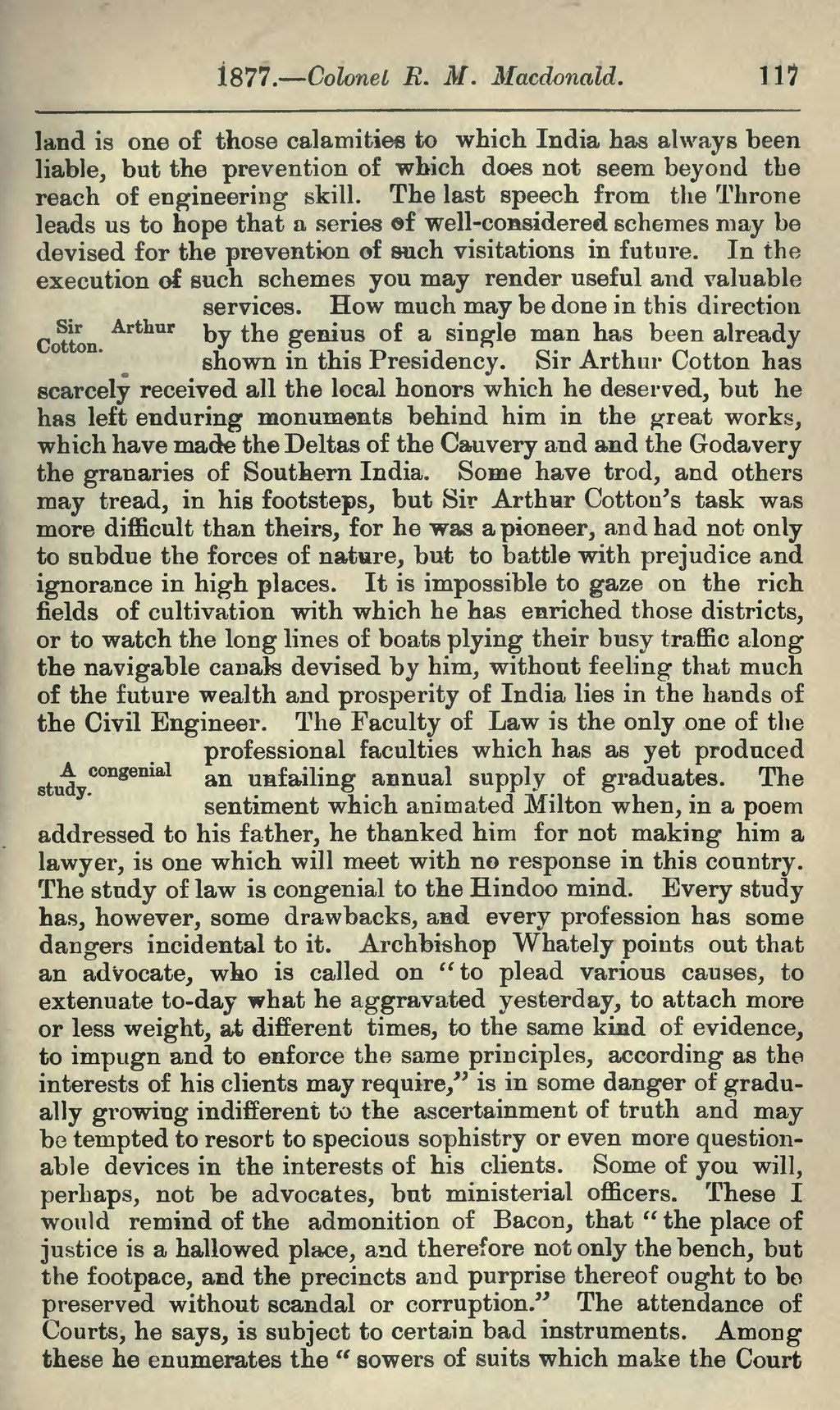land is one of those calamities to which India has always been liable, but the prevention of which does not seem beyond the reach of engineering skill. The last speech from the Throne leads us to hope that a series ©f well-considered schemes may be devised for the prevention of such visitations in future. In the execution of such schemes you may render useful and valuable services. Sir Arthur Cotton. How much may be done in this direction by the genius of a single man has been already shown in this Presidency. Sir Arthur Cotton has scarcely received all the local honors which he deserved, but he has left enduring monuments behind him in the great works, which have made the Deltas of the Cauvery and and the Godavery the granaries of Southern India. Some have trod, and others may tread, in his footsteps, but Sir Arthur Cotton's task was more difficult than theirs, for he was a pioneer, and had not only to subdue the forces of nature, but to battle with prejudice and ignorance in high places. It is impossible to gaze on the rich fields of cultivation with which he has enriched those districts, or to watch the long lines of boats plying their busy traffic along the navigable canals devised by him, without feeling that much of the future wealth and prosperity of India lies in the hands of the Civil Engineer. A congenial study. The Faculty of Law is the only one of the professional faculties which has as yet produced an unfailing annual supply of graduates. The sentiment which animated Milton when, in a poem addressed to his father, he thanked him for not making him a
lawyer, is one which will meet with no response in this country. The study of law is congenial to the Hindoo mind. Every study has, however, some drawbacks, and every profession has some dangers incidental to it. Archbishop Whately points out that an advocate, who is called on "to plead various causes, to extenuate to-day what he aggravated yesterday, to attach more or less weight, at different times, to the same kind of evidence, to impugn and to enforce the same principles, according as the interests of his clients may require," is in some danger of gradually growing indifferent to the ascertainment of truth and may be tempted to resort to specious sophistry or even more questionable devices in the interests of his clients. Some of you will, perhaps, not be advocates, but ministerial officers. These I would remind of the admonition of Bacon, that "the place of justice is a hallowed place, and therefore not only the bench, but the footpace, and the precincts and purprise thereof ought to be preserved without scandal or corruption." The attendance of Courts, he says, is subject to certain bad instruments. Among these he enumerates the "sowers of suits which make the Court